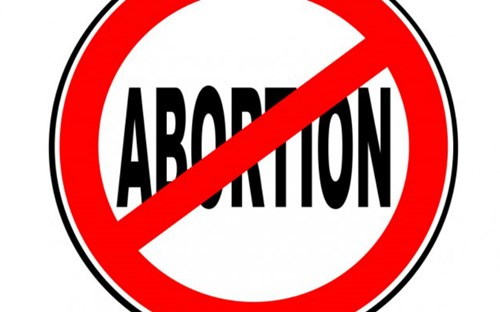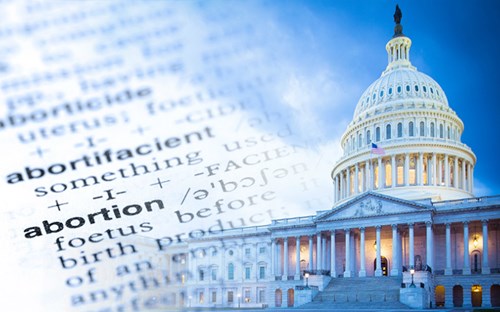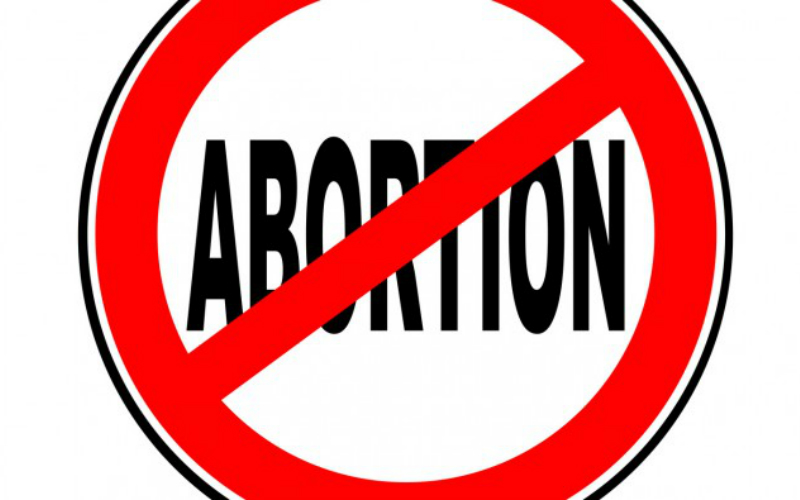One woman is Amber Nicole Thurman. The other is Candi Miller.
ProPublica, a nonprofit newsroom, shared Amber's story this way: "In her final hours, Amber Nicole Thurman suffered from a grave infection that her suburban Atlanta hospital was well-equipped to treat.
"In her final hours, Amber Nicole Thurman suffered from a grave infection that her suburban Atlanta hospital was well-equipped to treat.
She'd taken abortion pills and encountered a rare complication; she had not expelled all of the fetal tissue from her body. She showed up at Piedmont Henry Hospital in need of a routine procedure to clear it from her uterus, called a dilation and curettage, or D&C.
But just that summer, her state had made performing the procedure a felony, with few exceptions. Any doctor who violated the new Georgia law could be prosecuted and face up to a decade in prison.
Thurman waited in pain in a hospital bed, worried about what would happen to her 6-year-old son, as doctors monitored her infection spreading, her blood pressure sinking and her organs beginning to fail.
It took 20 hours for doctors to finally operate. By then, it was too late."
In the case of Candi Miller, ProPublica said it this way:
"Candi Miller's health was so fragile, doctors warned having another baby could kill her.
"They said it was going to be more painful and her body may not be able to withstand it," her sister, Turiya Tomlin-Randall, told ProPublica.

But when the mother of three realized she had unintentionally gotten pregnant in the fall of 2022, Georgia's new abortion ban gave her no choice. Although it made exceptions for acute, life-threatening emergencies, it didn't account for chronic conditions, even those known to present lethal risks later in pregnancy.
At 41, Miller had lupus, diabetes and hypertension and didn't want to wait until the situation became dire. So she avoided doctors and navigated an abortion on her own — a path many health experts feared would increase risks when women in America lost the constitutional right to obtain legal, medically supervised abortions.
Miller ordered abortion pills online, but she did not expel all the fetal tissue and would need a dilation and curettage procedure to clear it from her uterus and stave off sepsis, a grave and painful infection. In many states, this care, known as a D&C, is routine for both abortions and miscarriages. In Georgia, performing it had recently been made a felony, with few exceptions.
Her teenage son watched her suffer for days after she took the pills, bedridden and moaning. In the early hours of Nov. 12, 2022, her husband found her unresponsive in bed, her 3-year-old daughter at her side."
Katie Daniel, state policy director at Susan B Anthony Pro Life America, says ProPublica claims that it is looking for the truth, but "publishes very pro-abortion reporting." Daniel adds that this should be a wakeup call about the dangers of abortion pills.  "These drugs are dangerous," says Daniel. "They are certainly not as "safe as Tylenol," which is what we hear many politicians say, and these deaths are tragedies."
"These drugs are dangerous," says Daniel. "They are certainly not as "safe as Tylenol," which is what we hear many politicians say, and these deaths are tragedies."
While ProPublica is blaming Georgia's pro-life law that protects unborn children after they have a heartbeat, Susan B Anthony Pro Life America sees the foreseeable consequence of these dangerous drugs in the case of one of these women being sent to her through the mail.
Daniels recommends pro-lifers take a clear-eyed view of these situations.
"The fact remains that every single state's pro-life laws allow for hospitals to treat women in a medical emergency, and no state's pro-life laws will punish the women," says Daniels.
Susan B Anthony Pro Life America demands that politicians such as Vice President Kamala Harris retract statements that women cannot get access to health care because of pro-life laws. The pro-life organization also calls for politicians to "speak the truth to American women who need to understand you can always get healthcare and you should seek health care if you are suffering any kind of a medical emergency."
In a statement to AFN, ProPublica said it stands by its reporting.
"The state’s committee of more than 30 experts concluded that the deaths of Amber Thurman and Candi Miller were preventable, a newsworthy finding. Our ongoing reporting is illuminating the challenges doctors face in caring for patients with pregnancy complications in states with restricted access to abortion."







